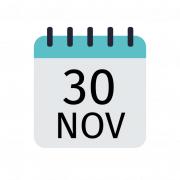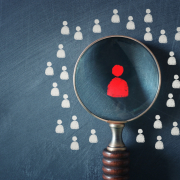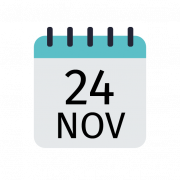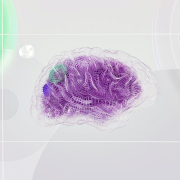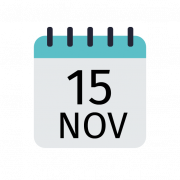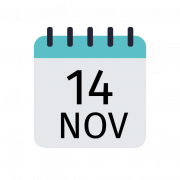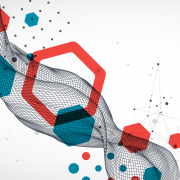Archive for month: November, 2023
New ALLEA Report Highlights the Evolution of Digital Practices in the Humanities
In an era marked by rapid advancements in technology and an increasing emphasis on Open and digital outputs, the humanities have seen a significant transformation in their scholarly practices. To address, evaluate and recognise these changes, the report ‘Recognising Digital Scholarly Outputs in the Humanities’ sheds light on the evolving landscape of digital humanities scholarship.
Drafted by the ALLEA Working Group E-Humanities, the new report stresses that the expansion of digital practices and open outputs in humanities scholarship should be regarded as a natural progression of scholarly endeavours leveraging digital technologies. It calls for the adaptation of assessment systems, emphasising the importance of interdisciplinary work, novel research methodologies, and innovative scholarly outputs that go beyond traditional academic formats such as books or journal articles.
The report also underscores the significance of linking studies with FAIR research data, acknowledging continuations and open-ended outputs, recognising multiple scholarly roles in the authorship attribution, providing interdisciplinary competence-building, and improving evaluation processes.
The report’s second section provides practical recommendations for evaluating specific types of digital scholarly outputs, such as digital scholarly editions, extended publications, databases and datasets, visual representations (infographics and maps), code, blogs, and podcasts. Each case study includes examples and suggested reading materials.
Maciej Maryl, chair of the ALLEA Working Group E-Humanities says:
“Although the digital age offers a plethora of formats that seem better equipped to communicate diverse scholarly findings, our research assessment systems still heavily favour traditional outputs like journal articles and books. In our report, we provide examples of good practices for emerging and innovative digital outputs, as well as a framework for researchers and institutions of how to evaluate them.
Ultimately, this should contribute to increasing the diversity of scholarly outputs and ensuring that researchers receive the appropriate recognition and reward for developing and using them.“
ALLEA Permanent Working Group Intellectual Property Rights Meeting
The ALLEA Permanent Working Group on Intellectual Property Rights is scheduled to meet on 24 November 2023. This is a closed meeting.
TechEthos Holds Final Policy Event on Ethics for the Green and Digital Transition
On 14 November, the Horizon 2020-funded TechEthos project held its final policy event in Brussels to discuss the role of ethics in the green and digital transitions for an audience of researchers, policymakers, and the wider community.
Since 2020, an EU-funded consortium led by the Austrian Institute of Technology (AIT) has been exploring the societal and ethical impacts of new and emerging technologies. The TechEthos project aims to facilitate “ethics by design”, i.e., it advocates to bring ethical and societal values into the design and development of technology from the very beginning of the process.
The policy event, which signals the end of the project in 2023, was hosted by Barbara Thaler, Member of the European Parliament (MEP) and member of the Panel for the Future of Science and Technology (STOA). The event highlighted ongoing ethical debates, as well as current and expected EU policy debates such as the proposed AI Act, the implementation of the Digital Services Act and Digital Markets Act, the European Green Deal, and the European Commission’s proposal for a Carbon Removal Certification Framework.
In his opening statement, Mihalis Kritikos, Policy Analyst at the European Commission’s Directorate-General for Research and Innovation (DG RTD), stressed that ethically designed policies are essential for public acceptance of new technologies, and ultimately for a just digital and green transition.
His remarks were complemented by TechEthos Coordinator, Eva Buchinger, who provided an overview of how TechEthos addresses possible concerns from society related to new and emerging technologies using an approach that combines scanning, analysing and enhancing existing frameworks and policies. The key messages are condensed in a number of TechEthos policy briefs, which are available here.
Ethics for the digital transformation
In the first keynote of the day, Laura Weidinger, Senior Research Scientist at Google DeepMind, discussed different approaches to socio-technical safety evaluation of generative AI systems to explore how we can ensure that models like ChatGPT are safe to release into society. At an early developmental stage, it can be challenging to predict a technology’s capabilities, how it will be used, and its impact on the world.
Most of the current safety evaluations and mechanisms focus on fact-checking the direct capability of language models, i.e., whether the information they generate is accurate. However, the believability of such information, as well as its impact on society, remain largely understudied. Weidinger advocated for an ethics evaluation framework with a clear division of roles and responsibilities, where model-builders carry the main responsibility for capability testing, application developers for studying their use, and third-party stakeholders for looking at systemic impact.
A panel consisting of Laura Weidinger, Alina Kadlubsky (Open AR Cloud Europe), and Ivan Yamshchikov (CAIRO – the Center for Artificial Intelligence and Robotic), introduced by Alexei Grinbaum (CEA – the French Alternative Energies and Atomic Energy Commission & TechEthos partner), dived deeper into the ethical, social, and regulatory challenges of Digital Extended Reality and Natural Language Programming.
The panel reflected on key ethical issues related to emerging technologies, including transparency (should AI-generated content always be marked as such, and is this sufficient for users to process it accordingly?), accountability (how do we balance the responsibilities of users and developers and can real-world values and regulations be translated into the metaverse?), and nudging/manipulation (what should be permitted, and when does it serve the benefit society?).
Ethics for the green transition
In the afternoon, Behnam Taebi, Professor of Energy & Climate Ethics at Delft University of Technology, gave a keynote lecture on the governance and ethical challenges of emerging technologies for the green transition. Climate Engineering technologies continue to be controversial, and some researchers have even called for a complete ban on research in this area. This is largely due to substantial possible risks (e.g., ozone depletion, negative impacts on agriculture, and many as yet unknown risks), as well as regulatory complexity due to their international and intergenerational nature.
However, these technologies are increasingly being considered essential to cap global warming at 1.5 degrees, meaning that an ethically-informed future governance framework will be needed. Taebi emphasised that these technologies (and their potential and risks) continuously evolve, and so do public perception and moral beliefs. Therefore, a dynamic ethical assessment will be required to make regulatory frameworks fit for the future.
The lecture was followed by a panel discussion with Behnam Taebi, Dušan Chrenek (European Commission, DG Climate Action), and Matthias Honegger (Perspectives Climate Research), introduced by Dominic Lenzi (University of Twente & TechEthos partner), which provided further insights into the ethical, social, and regulatory challenges related to Climate Engineering .
The panel concluded that any technological opportunities that contribute to climate change mitigation should be explored. However, they emphasised that it is important to acknowledge that different technologies (i.e., carbon dioxide removal v. solar radiation modification) have very different societal implications, hugely diverse risk profiles, and unique intellectual property challenges, and should therefore be subject to tailored ethical analyses and regulatory frameworks.
Highlights and outlook for the ethical governance of emerging technologies
In the final session, Maura Hiney, Chair of the ALLEA Permanent Working Group on Science & Ethics, placed TechEthos’s outcomes in the larger context of the recently revised ALLEA Code of Conduct for Research Integrity, and reiterated the requirement for suitable research integrity frameworks to guide researchers that work on emerging technologies.
To conclude the event, Eva Buchinger, Laurence Brooks (University of Sheffield), and Renate Klar (EUREC – European Network of Research Ethics Committees) shared their views and insights on the continuation and implementation of the work beyond the lifetime of the TechEthos project.
TechEthos Consortium Meeting
The next TechEthos Consortium Meeting will take place on 15 November 2023 in Brussels. This is a closed meeting.
TechEthos Policy Event: Ethics for the Green and Digital Transition
On 14 November, TechEthos will hold an in-person policy event in Brussels, Belgium, co-hosted by Barbara Thaler, Member of the European Parliament & STOA Panel.
Task Group on IP System for New Genomic Techniques Meeting
The ALLEA task group on creating an IP system for new genomic techniques is scheduled to meet on 10 November 2023. This is a closed meeting.
ALLEA Participates in EU-Funded Project to Support Reforms in Research Assessment
Research assessment has the aim of making well-informed decisions about funding, hiring, and promotion, and remains a core pillar of our research system. However, while current assessment practices provide an important means to support the advancement of knowledge and recognise and reward excellence, they rely heavily on quantitative approaches rather than qualitative evaluation. Likewise, they often fail to acknowledge the diversity of the research outputs and skills that are needed for a thriving research ecosystem.
In October 2023, a consortium of European research stakeholder organisations embarked on a Horizon Europe-funded project in order to bring research assessment beyond its simplistic reliance on quantitative indicators. The three-year-long project has a budget of €5 million and aims to enact a systemic reform of research assessment following the principles and commitments agreed upon by the Coalition for Advancing Research Assessment (CoARA). ALLEA has been actively involved in the drafting of this European agreement, and was one of the early signatories and members of the coalition.
The “CoARA Boost” project is led by the European Science Foundation (ESF), and includes, alongside ALLEA, leading European network organisations for (early career) researchers, research funders, and universities committed to promoting change. The key objectives of the CoARA Boost Project are to i) strengthen CoARA’s operational capacity, ii) catalyse knowledge development, policy evolution, and institutional change in research assessment, iii) facilitate the collection and exchange of information, and iv) widen the Coalition’s membership in Europe and beyond.
The consortium will convene for a kick-off meeting in Brussels on 7-8 December 2023 to delve into the specifics of the collaboration, which will play a pivotal role in advancing CoARA’s mission.
ALLEA approaches the topic of research assessment through its various working groups and task forces. A complete overview of these activities can be found here.

